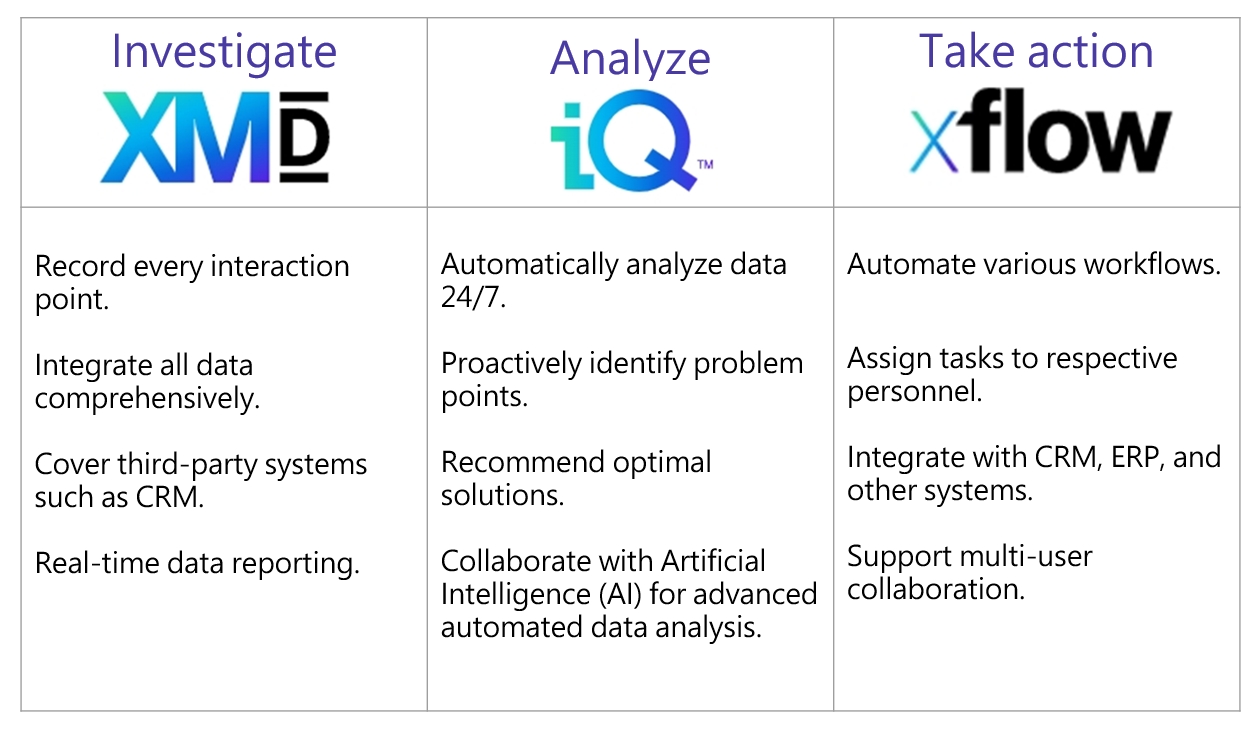Qualtrics
NSE Qualtrics Experience Management
What is Experience Management?
Experience Management focuses on the experiences customers and employees gain during their interactions with a company. It involves the management and optimization of these experiences. The goal is to enhance brand loyalty, customer satisfaction, employee satisfaction, performance, and competitiveness through data analysis after surveys. This analysis delves beyond traditional Operational Data (O Data) to understand the underlying Experience Data (X Data) and the deeper insights into the reasons behind the data, spanning industries from academia to corporate enterprises.
Qualtrics Experience Management
Qualtrics is one of the world's most popular Experience Management platforms. Gartner has recognized it as a leader in the global Experience Management platform market. Qualtrics offers a comprehensive Experience Management platform called XM (Experience Management). This platform can analyze customer, employee, product, and brand experiences, providing effective solutions. The data analysis process encompasses both traditional Operational Data (O Data) analysis and understanding the Experience Data (X Data) underlying the data, thus comprehending the meaning and causes behind the data. The application of XM spans various industries, from academic research to corporate enterprises.
Three Key Elements of the Qualtrics XM Platform

O Data vs. X Data
Qualtrics XM integrates both types of data for cross-analysis to enhance a company's overall competitiveness.

O Data: Represents Operational Data generated from a company's daily operations, such as sales, inventory, and financial data. These data are easy to collect and manage, originating from the company's internal systems and databases.
X Data: Represents Experience Data, which includes opinions and feedback from customers, employees, etc. This data includes customer surveys, employee opinion surveys, social media feedback, and more. This type of data is usually harder to collect and analyze, as it originates from the external environment of the company.
Qualtrics' Strong International Position

Customer Experience Management (CX)
Customer experience refers to the entirety of a customer's feelings during each interaction with a company. Customer Experience Management (CX) transforms these feelings into data, which, when comprehensively collected, is analyzed to identify customer needs and pain points. The platform proposes improvement solutions and automates their execution, providing personalized and delightful interactions at every touchpoint.
Customer experience management contributes to:
1. A deeper understanding of customers.
2. Increased customer loyalty.
3. Effective reduction of service and operational costs.
4. Development of useful solutions.
5. Enhanced trust in the brand.
Employee Experience Management (EX)
Employee experience involves collecting and analyzing employees' genuine thoughts throughout their journey from onboarding to departure. This approach continuously considers employees, proposes progressive internal policies, optimizes the employee-company relationship, and efficiently manages and distributes workloads through automation. This ensures comprehensive training, optimal workload distribution, and the development of welfare plans that cater to employee needs, ultimately reducing the likelihood of talent attrition.
Employee experience management contributes to:
1. More efficient employee management and task allocation.
2. Providing more fitting benefits and policies for employees.
3. Improved employee productivity.
4. Reduced employee turnover.
5. Establishing a better company reputation and image.
6. Enhancing customer satisfaction.
Advantages of NSE Qualtrics
1. Versatility: Offers various survey designs and research functionalities, such as online, face-to-face, and phone surveys.
2. User-Friendly: Simple user interface enables easy creation and design of surveys.
3. Diverse Question Types: Provides multiple question types, including single/multiple choice, open-ended questions, numeric sliders, etc., catering to different survey needs.
4. Security: Robust data security features including SSL encryption, IP filtering, two-factor authentication, etc., safeguard respondents' personal information and survey data.
5. Seamless Integration: Can integrate with other systems like CRM, ERP, HCM, achieving seamless data integration.
6. Customization: Tailored projects and actions according to different company needs.
7. Official Certification: NSE holds official Qualtrics certification, along with a network of over 200 partners and 1000+ professional experience consultants.
The Importance of Experience Management
In recent years, more and more companies recognize the significance of experience management. Strong customer experiences empower companies' capabilities and stabilize market positions. According to Gartner, by 2020, 80% of companies consider customer experience as a key strategic advantage.
Furthermore, Forrester's research shows that customer experience leaders achieve 14% higher revenue growth and 15% higher market share compared to industry averages.
Positive employee experiences directly reduce talent attrition and enhance overall corporate culture. Gallup research demonstrates that workplaces where employee engagement ranks in the top 25% exhibit 10% higher customer satisfaction, 22% higher profitability, 21% higher employee productivity, and lower rates of turnover, absenteeism, and safety incidents compared to workplaces with lower employee engagement. All these studies emphasize the indispensable role of experience management in the future business landscape.



